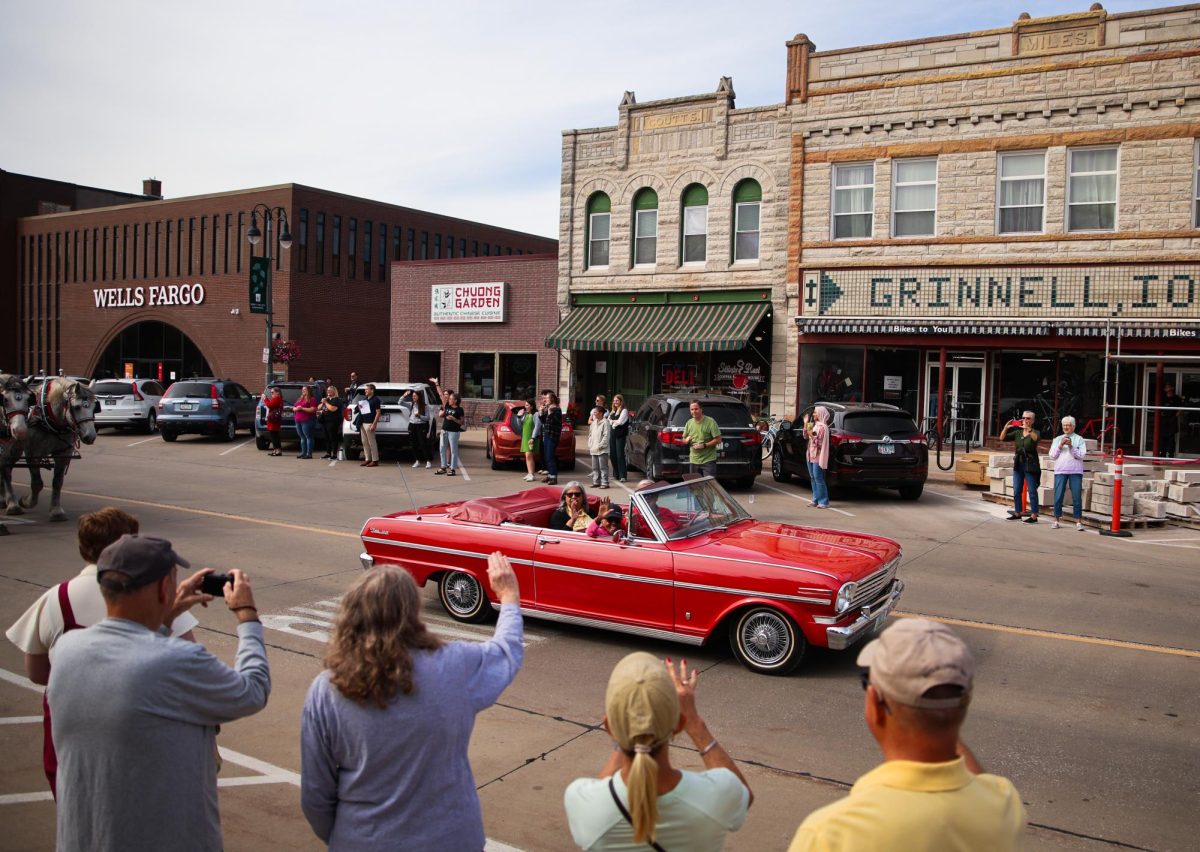Labor recertification votes for public-sector bargaining units began this Tuesday, with many more set to happen in October. These votes are part of the sweeping public sector collective bargaining law passed this past February. The voting will determine whether or not workers continue to be represented by their unions, and has the potential to cripple organized labor in the state of Iowa. Per the new collective bargaining law, recertification votes must happen every time a public-sector union local negotiates a new contract, usually every two to three years. There are currently 1,203 public bargaining units in Iowa, representing about 120,000 workers.
The recertification elections are conducted on the individual bargaining unit level, meaning that two comparable bargaining units, such as local teachers’ unions in neighboring counties, could end up with different results. In order to be recertified, more than half the members of a bargaining unit, not just the members who voted, need to vote to recertify. The new recertification election requirements only apply to public-sector union locals, who represent workers such as teachers, county and municipal employees, police officers and employees of public works departments.
Republicans praise the new recertification process, saying it keeps unions accountable to their members.
“It’ll make the unions more answerable to their members. A lot of times they took it for granted that they had the support of their members. For a lot of members, they’re now going to see a union that’s a lot more responsive to their concerns,” said Rep. Dave Deyoe, chairman of the House Labor Committee, to The Des Moines Register.
Democrats and labor leaders disagree, saying there was already an adequate process to decertify a public sector union, thus ending the union’s representation of the bargaining unit.
“It’s not necessary. There was already a process in the old law before it was changed for initial certification votes and then decertification votes,” said Coy Marquadt, associate executive director of the Iowa State Education Association, which represents teachers and educators across Iowa.
The recertification process is just one part of the major collective bargaining overhaul passed last February by the Republican-controlled legislature. The controversial bill, approved along party lines with six House Republicans defecting, limits what can be bargained over in public sector union contract negotiations. The new law allows only base wages to be negotiated and excludes components such as health care and seniority benefits from the bargaining process. The package also changes the arbitration process for when contract talks reach an impasse. The changes include limiting the amount an arbitrator can raise wages, among other differences.
Certain employees who work in public safety, including firefighters and police officers, are exempt from the restrictions limiting what they can bargain over, although university police and correctional officers are not included in this group. The collective bargaining law upends a 43-year-old law signed by Republican Gov. Robert Ray.
Charlie Wishman, secretary and treasurer of the Iowa Federation of Labor, a part of the AFL-CIO, said the recertification process, and the collective bargaining overhaul in general, is an attempt to curb the power of organized labor and weaken the Democratic Party.
“It’s probably one of the worst labor laws that has been passed in the state’s history, and in addition the part about these recertification votes is nothing short of union busting,” Wishman said. “This has nothing to do with the concerns of taxpayers or anything like that; this is about how do we weaken labor unions and as a consequence of that … how do we weaken the Democratic Party?”
For unions, getting not just a majority of members who voted to retain the union but a majority of all members in the bargaining unit can be difficult because, in a right-to-work state like Iowa, workers in the bargaining unit do not have to be a part of the union to receive the benefits of the union-negotiated contract.
“I think it’s a whole lot of different methods that unions are taking right now to contact people who are members, and quite frankly people who are not members, and saying ‘I realize you don’t want to pay your fair share to belong to the union and get the benefits of the contract out of it, but will you vote yes at least to ensure that you still have that representation?’” Wishman said.
Despite the difficulty of the recertification process, Marquadt is confident that ISEA members will vote to continue their union representation.
“We have confidence that our members will be engaged and vote in it. Teachers vote in general elections at higher rates than the rest of the electorate,” Marquadt said. “You know while it’s absolutely onerous and ridiculous the threshold they made for the vote — because no other election is held to that same standard — we feel confident that our members will stand up for their voice and continue to have that voice in their local association.”
Labor recertification votes for public-sector bargaining units began this Tuesday, with many more set to happen in October. These votes are part of the sweeping public sector collective bargaining law passed this past February. The voting will determine whether or not workers continue to be represented by their unions, and has the potential to cripple organized labor in the state of Iowa. Per the new collective bargaining law, recertification votes must happen every time a public-sector union local negotiates a new contract, usually every two to three years. There are currently 1,203 public bargaining units in Iowa, representing about 120,000 workers.
The recertification elections are conducted on the individual bargaining unit level, meaning that two comparable bargaining units, such as local teachers’ unions in neighboring counties, could end up with different results. In order to be recertified, more than half the members of a bargaining unit, not just the members who voted, need to vote to recertify. The new recertification election requirements only apply to public-sector union locals, who represent workers such as teachers, county and municipal employees, police officers and employees of public works departments.
Republicans praise the new recertification process, saying it keeps unions accountable to their members.
“It’ll make the unions more answerable to their members. A lot of times they took it for granted that they had the support of their members. For a lot of members, they’re now going to see a union that’s a lot more responsive to their concerns,” said Rep. Dave Deyoe, chairman of the House Labor Committee, to The Des Moines Register.
Democrats and labor leaders disagree, saying there was already an adequate process to decertify a public sector union, thus ending the union’s representation of the bargaining unit.
“It’s not necessary. There was already a process in the old law before it was changed for initial certification votes and then decertification votes,” said Coy Marquadt, associate executive director of the Iowa State Education Association, which represents teachers and educators across Iowa.
The recertification process is just one part of the major collective bargaining overhaul passed last February by the Republican-controlled legislature. The controversial bill, approved along party lines with six House Republicans defecting, limits what can be bargained over in public sector union contract negotiations. The new law allows only base wages to be negotiated and excludes components such as health care and seniority benefits from the bargaining process. The package also changes the arbitration process for when contract talks reach an impasse. The changes include limiting the amount an arbitrator can raise wages, among other differences.
Certain employees who work in public safety, including firefighters and police officers, are exempt from the restrictions limiting what they can bargain over, although university police and correctional officers are not included in this group. The collective bargaining law upends a 43-year-old law signed by Republican Gov. Robert Ray.
Charlie Wishman, secretary and treasurer of the Iowa Federation of Labor, a part of the AFL-CIO, said the recertification process, and the collective bargaining overhaul in general, is an attempt to curb the power of organized labor and weaken the Democratic Party.
“It’s probably one of the worst labor laws that has been passed in the state’s history, and in addition the part about these recertification votes is nothing short of union busting,” Wishman said. “This has nothing to do with the concerns of taxpayers or anything like that; this is about how do we weaken labor unions and as a consequence of that … how do we weaken the Democratic Party?”
For unions, getting not just a majority of members who voted to retain the union but a majority of all members in the bargaining unit can be difficult because, in a right-to-work state like Iowa, workers in the bargaining unit do not have to be a part of the union to receive the benefits of the union-negotiated contract.
“I think it’s a whole lot of different methods that unions are taking right now to contact people who are members, and quite frankly people who are not members, and saying ‘I realize you don’t want to pay your fair share to belong to the union and get the benefits of the contract out of it, but will you vote yes at least to ensure that you still have that representation?’” Wishman said.
Despite the difficulty of the recertification process, Marquadt is confident that ISEA members will vote to continue their union representation.
“We have confidence that our members will be engaged and vote in it. Teachers vote in general elections at higher rates than the rest of the electorate,” Marquadt said. “You know while it’s absolutely onerous and ridiculous the threshold they made for the vote — because no other election is held to that same standard — we feel confident that our members will stand up for their voice and continue to have that voice in their local association.”




















































